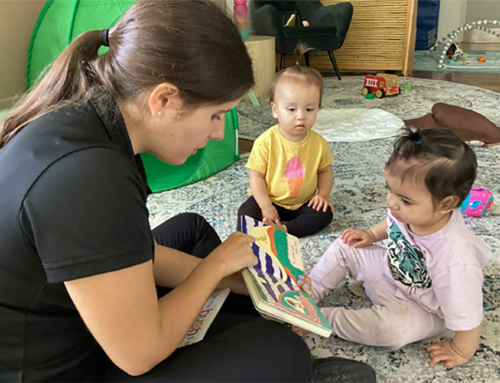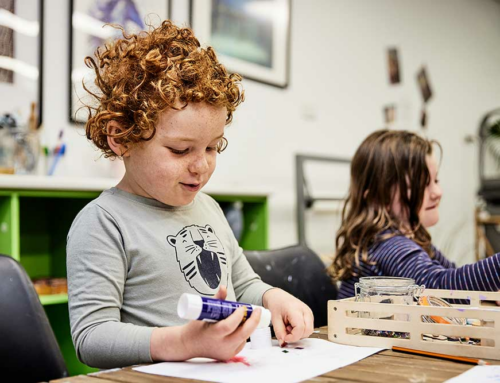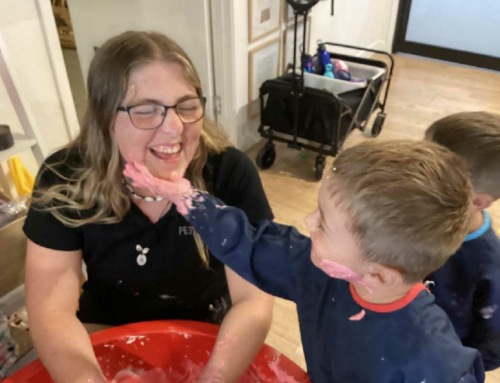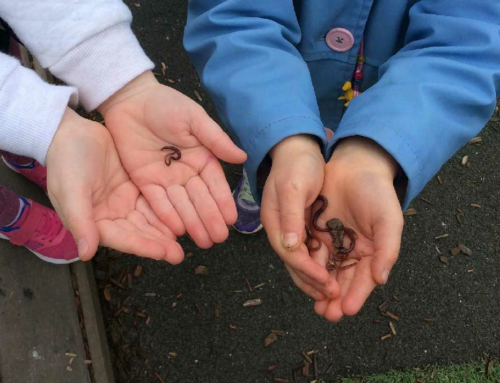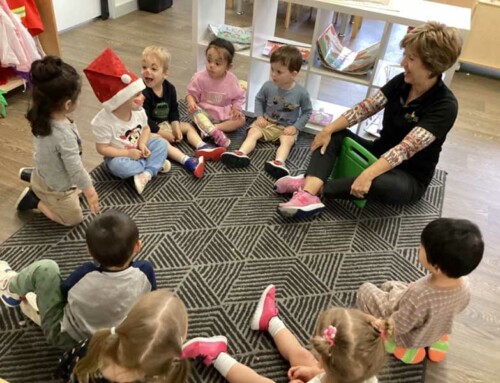Do you have a unique passion project?
Passion projects or personal projects are usually activities we take on outside our professional sphere to develop our deeper, personal interests. We frequently associate passion-based projects with a hobby as they provide personal enjoyment.
Passion projects are not usually associated with things like professional development, or thought of as projects to be engaged in at work. And while a passion project movement for students has taken off in higher education, it’s not a concept we connect with early learners.
However, there are many benefits for encouraging passion projects or passion-based projects in an early childhood teaching environment. Not only do they help to build new skills, extend our learning and develop leaders, they also create engagement for our employees within the workplace.
In this article, we’re going to explore passion projects further by drawing upon examples from two of our Petit Early Learning Journey Centres, Burleigh and Hamilton. We’ll also discuss:
- What is a passion project?
- How passion projects support professional development and promote leadership.
- How passion project ideas contribute to child-centred learning.
- Passion project examples for early learners.

What is a passion project?
A passion project is an exciting activity or side-project that you explore for its enjoyment. We associate passion-based projects with a deeper personal meaning, and they may have another benefit associated with it, like learning new skills or educating others.
These personal projects are not limited to a particular type of activity, like sport, science or creative arts. They can also flow from an interest in nature like growing succulents, reading or a desire to enrich a learning environment with a particular teaching pedagogy like the Reggio Emilia approach.
Sometimes, people go in search of a passion project to occupy their free time. Other times they can fall into a person’s lap through chance or by being in the right place at the right time.
Earlier this year, at Petit Early Learning Journey Burleigh, our centre team and children discovered native bees on the roof in the outdoor area. They were attracted to sunflowers growing in the garden. So, our centre contacted a native bee expert.
Dr Toby from Bee Aware Kids came out to visit our Burleigh centre. He helped them to set up a beehive and provided some much-needed advice about the bees to our Educators and curious children, like how to be gentle with the bees as flicking can kill them.
As it turns out, sunflowers weren’t the best diet for the bees. And so, a new passion project to develop a bee-friendly garden was born.

How passion projects support professional development and promote leadership
At Petit ELJ, we feel it’s essential to encourage our Centre Directors and Educators to discover and explore their passion projects in the workplace. Our centre teams are passionate about the work they do in early learning and their passion inspires and encourages our children.
Maiers and Sandvold in The Passion-Driven Classroom, advise that the first step in passion-based learning is for the Educator to know and show their passion.
For our Hamilton Centre Director, Kate, her passion project revealed itself while at the beach on holiday. ‘I noticed two groups of children playing on the beach. One group had buckets, spades and shovels while the other group had their imagination and creativity.
The group that had their imagination and little else built a marvellous sand creation, they all stood back and were so joyous in their achievement whereas the group that had all the tools to make beautiful creations did not get excited about what they had achieved. It reminded me of intentional teaching through resources which left little to the imagination.”
Once back from holidays, Kate armed with her observations and passion for making a difference called a team meeting where she asked everyone to recall a memory from their childhood.
“Not one educator mentioned anything materialistic; some examples were running through the outback and jumping into rivers, while others remembered the time when they were walking home from school following a family of ducks, building cubby houses in the front room using the furniture.
We decided to bring the magic back to childhood by reducing the number of resources in the studios. It took a few weeks for everybody to be on board with the change, but eventually, all the studios had little structured resources and more loose parts to promote creativity, imagination and a sense of achievement.”
Recognising particular passions in team members also allows our Educators and Centre Directors to deepen their expertise. It helps to build and sustain staff commitment and provides mentoring and leadership roles within the team.
Fiona, Centre Director at Petit Early Learning Journey Burleigh, recognised one of her team members’ passion for their sustainability projects. Shannon, an Educator at Burleigh, now takes on the role of sustainability and environmental officer for the Burleigh centre.
“Shannon encourages the children and mentors the team about sustainability in the centre. She’s the catalyst for getting our projects started. She’s researching different ways that we can reduce our environmental footprint.”

How passion project ideas contribute to child-centred learning
Being passionate about a project in front of our children ignites their passion and curiosity for learning. It’s about leading life-long learning by example. An Educator’s enthusiasm is as critical as a child’s passion. It ignites excitement and joy for learning new things.
When an Educator shows their passion for a particular project, it makes the project come alive for the children too. It stirs their imagination and motivates them to try new things. Passion projects also encourage inquiry learning which enables a child’s unique interests and enhances their sense of identity.
Downstairs in the Burleigh centre, there’s a butterfly and bee garden. The children have also created a bug hotel for natural pest control. The hotel attracts insects that will kill spider mites and aphids. In the garden, the Burleigh children propagate seedlings.
“They grow pumpkins and succulents,’ says Fiona. ‘At a recent community market day held at the centre, our children sold their pumpkins and succulents, and they put their earnings back into purchasing more supplies plus herbs and eggplants to add to their garden which they can now use for cooking experiences in their classrooms.’
‘We’ve encouraged passion project ideas that fit with our community. Our families and children are all into the environment, and the children are curious to learn what they can do in their backyards at home to help save our environment.’

Passion project examples for early learners
An essential aspect of a passion project is that the participants choose to do them freely. Passion project ideas can start by reading a book, inviting a guest to talk to our children, from play-based learning and exploring spaces.
Similarly, by encouraging our Centre Directors and Educators to develop their passion projects within the centre, we’re also igniting our children’s curiosity.
It’s critical that as Educators, we can step away from our projects to observe and nurture the ideas of our children. At Petit ELJ, our centre teams encourage creativity and flexibility while interacting and teaching children how to support their passions.
Passion projects for early learners begin by encouraging their fascinations and discovering their curiosities. From there, we support them to learn more and develop their interests through research, community support and inquiry-based learning.
With children’s interest focused on helping the environment, our Burleigh centre organised an evening workshop for parents and Educators with the Sustainable Schools Network. ‘We talked about food waste and what we can do in the environment to work towards a better future.
One of our sustainable projects includes the use of compost bins for our scraps which we can then put back into our bee garden. We have two compost bins with worms, one downstairs and one upstairs at our rooftop garden and playground.
When the children collect their scraps, they’ve learnt that our worms can’t have citrus, so we have to separate what we receive. When we have scraps that we can’t use, one of our team members takes it home and finds someone in the Share Waste Program who can accept it.’
Our children and team members have researched the right combination of things to put in our compost so we don’t get mould and can use it in the garden.’
More recently, devastating fires near Burleigh in Queensland have made the children curious about the plight of animals affected by the fires.
‘We decided to contact Green Heroes, a local children’s conservation programme to find out what we could do to help, and we’ve just launched a nest box donation drive to raise funds for emergency rescue kits to help the wildlife affected by the fires.’

Explore your passion projects with Petit Early Learning Journey
At Petit ELJ, we value a child’s choice. We encourage our teaching teams to engage with modern pedagogies, especially where each child’s interests and joyous experiences are cherished.
If you’re ready to bring joy to children by nurturing their curiosity and imagination through the sharing of interests and genuine excitement for passion projects and learning, then we’d love to hear from you.
